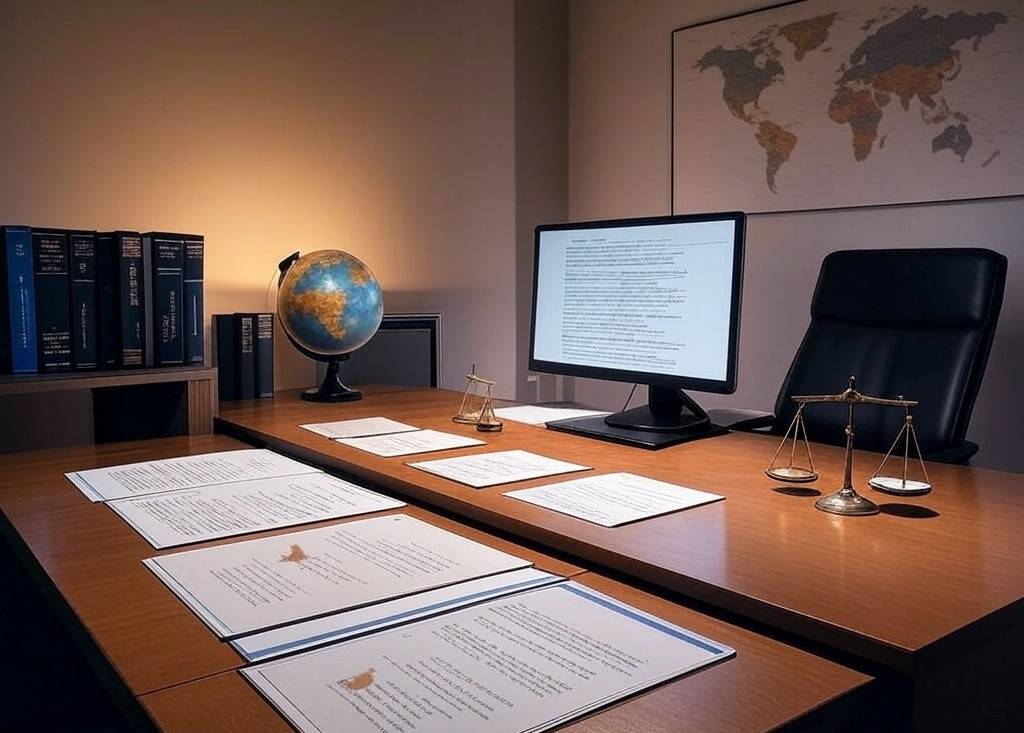Legal linguists play a critical role in the intersection of language and the law. Their work ensures that legal documents, proceedings, and interpretations are precise and consistent across languages. As the demand for globalization grows, legal linguists have become indispensable for translating and interpreting legal materials while preserving their legal integrity.
This article explores the field of legal linguistics, its applications, and the skills required to excel in this complex yet fascinating profession.
What Is a Legal Linguist?
A legal linguist is a professional skilled in both linguistics and legal matters. They bridge the gap between legal professionals and languages, ensuring clarity and accuracy when translating or interpreting legal content. Their expertise lies in understanding the complexities of legal terminology and translating it in a way that respects both the linguistic structure and legal intent.
Key Functions of Legal Linguists
- Translation of Legal Documents: Legal linguists ensure contracts, agreements, court transcripts, and other legal texts are accurately translated without altering their meaning.
- Interpreting in Legal Proceedings: They facilitate communication during trials, depositions, or international arbitrations by providing real-time interpretation.
- Forensic Linguistics: Some legal linguists specialize in analyzing language used in criminal cases, such as ransom notes, suicide letters, or trademark disputes.
- Legal Drafting in Multiple Languages: They contribute to drafting legal texts that hold up under scrutiny in various legal systems and jurisdictions.
 Why Legal Linguists Are Essential
Why Legal Linguists Are Essential
The legal field depends on precision, and even minor translation errors can have catastrophic consequences. Misinterpreted contracts, inaccurate legal translations, or poorly translated evidence can lead to financial losses or wrongful convictions. Legal linguists prevent such risks by ensuring the accuracy and consistency of language across all legal contexts.
Globalization and the Legal Field
With international law governing trade, immigration, and intellectual property, legal professionals are increasingly handling cases that span multiple jurisdictions. This creates a need for experts who can navigate the intricacies of both legal systems and languages. Legal linguists are vital in these scenarios, particularly when translating legal briefs, agreements, or court judgments.
Related: The Importance of Technical Translation Services in Today’s Global Market
Skills Required to Become a Legal Linguist
Becoming a legal linguist requires a unique blend of linguistic and legal expertise. Below are the core skills essential to succeed in this field:
1. Fluency in Multiple Languages
A deep understanding of at least two languages is crucial. This includes knowledge of dialects, nuances, and cultural context to ensure accurate translations.
2. Mastery of Legal Terminology
Legal linguists must be well-versed in legal jargon, from civil law and international law to more niche areas like forensic linguistics.
3. Legal Knowledge
A law degree or equivalent knowledge of legal systems is often required to grasp complex legal concepts and their applications in different jurisdictions.
4. Analytical Thinking
Legal linguists need sharp analytical skills to interpret ambiguous language and ensure that the translated content aligns with its legal purpose.
5. Attention to Detail
Even a slight misstep in translating legal language can lead to misunderstandings. Legal linguists must exhibit exceptional attention to detail to prevent such errors.
6. Certification and Training
Many legal linguists pursue certification in translation or interpretation, such as those offered by professional organizations or legal institutions.
Related: Certified Translation Services: What You Need to Know
Applications of Legal Linguistics
Legal linguistics extends far beyond basic document translation. It has applications in various legal fields, including:
- Courtroom Interpreting: Facilitating communication for non-native speakers in legal proceedings.
- Forensic Linguistics: Analyzing language for criminal investigations or disputes over authorship.
- Legal Translation Services: Translating contracts, patents, and other binding legal documents for use across borders.
- Multilingual Legal Drafting: Assisting in the creation of documents that comply with the laws of different countries.
- International Organizations: Supporting bodies like the European Parliament or United Nations in handling multilingual legal matters.
Related: Interpreting Legal Documents: Navigating Complexity with Precision
Challenges in Legal Linguistics
Legal linguists face numerous challenges, including:
- Ambiguity in Language: Legal terms can be open to interpretation, requiring expertise to render them accurately in another language.
- Cultural Context: Differences in legal systems and societal norms can complicate translations.
- Fast-Paced Environments: Courtroom interpreting and real-time translation often require split-second decisions without room for error.
- Adapting to Legal Systems: Translating legal documents involves understanding the laws of multiple jurisdictions, which can vary significantly.
Career Paths in Legal Linguistics
The field offers diverse opportunities, including:
- Lawyer-Linguists: These professionals often work with international organizations, ensuring that legal documents comply with linguistic and legal standards.
- Forensic Linguists: Specialists in analyzing linguistic evidence for criminal cases.
- Legal Translators: Experts who translate legal documents for multinational corporations, law firms, or government agencies.
- Court Interpreters: Professionals who assist in legal proceedings, ensuring fair representation for non-native speakers.
Job opportunities are plentiful in international law firms, courts, government agencies, and private translation services.
Conclusion
Legal linguists are indispensable in today’s interconnected world, where law and language constantly intersect. Their ability to interpret and translate legal content accurately ensures that justice and fairness prevail across different languages and jurisdictions. As global legal matters grow more complex, so does the demand for these skilled professionals.
If you’re in need of expert legal linguistics services, reach out to Atlas Language Services, Inc. for precise and reliable solutions. Whether it’s translating legal documents, interpreting proceedings, or analyzing forensic evidence, their team delivers the linguistic expertise you require.
FAQs
What qualifications do I need to become a legal linguist?
To become a legal linguist, you typically need fluency in at least two languages, extensive knowledge of legal terminology, and often a law degree or certification in translation or interpretation.
What is the difference between a legal translator and a forensic linguist?
A legal translator focuses on accurately translating legal documents, while a forensic linguist analyzes language in legal contexts, often for criminal investigations or authorship disputes.
Why is cultural context important in legal linguistics?
Cultural context ensures that translations or interpretations align with societal norms and legal systems, preventing misunderstandings or errors in legal documents.
How does globalization affect the demand for legal linguists?
Globalization has increased the need for legal linguists as more legal matters involve cross-border communication, requiring accurate translations and interpretations to navigate international law.

